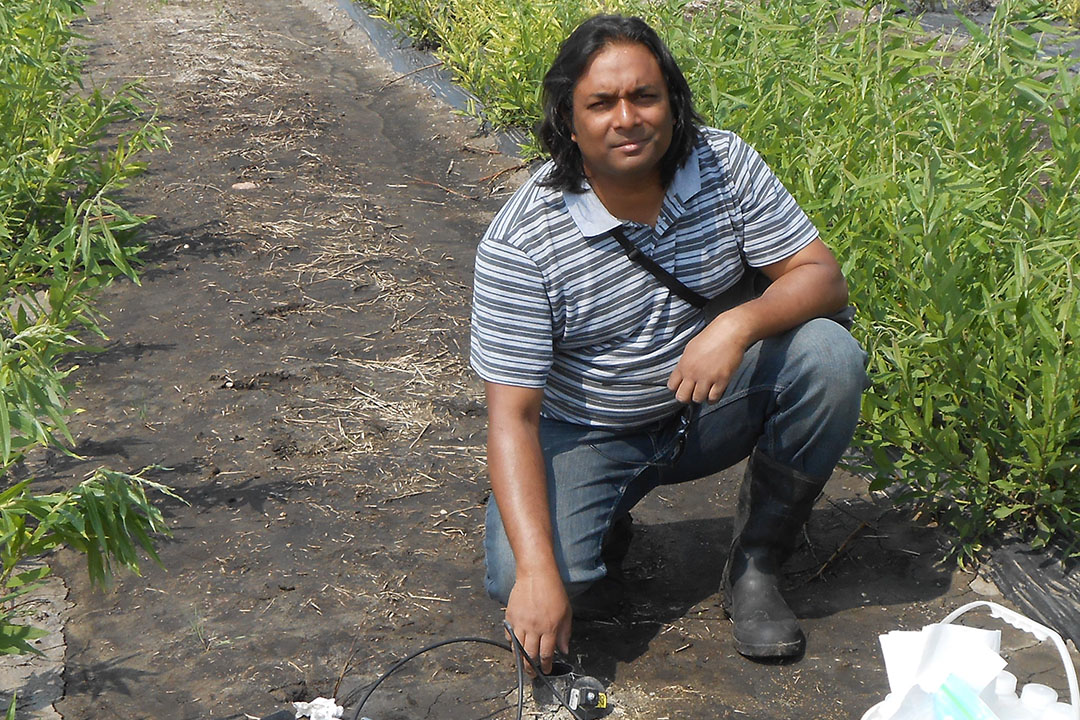
Soil science PhD graduate breaks new ground in Canada
Completing a PhD is a long and strenuous journey. Moving to a new continent to pursue your PhD, finishing your dissertation and defending your thesis during a pandemic only adds to the challenge. But University of Saskatchewan (USask) graduate Dr. Shayeb Shahariar (PhD) thrived during the experience.
By Brett MakulowichShahariar is graduating this month with a Doctor of Philosophy in Soil Science. Born in Bangladesh, Shahariar now calls Saskatoon home after moving here in 2013 to pursue his PhD.
He discovered USask while researching North American universities online. He chose USask due to its excellent soil science department and the many research opportunities that Saskatchewan offered as an agricultural production-based province. The opportunity to live in Canada was also a draw.
“Canada is culturally diverse and welcoming for international students, with free support to students and their families, such as health care, child benefits and schools,” said Shahariar.
In August 2020, Shahariar successfully defended his PhD thesis, Effects of Land-use Practice on Wetland Soil Hydrology, Salinity and Biogeochemistry in the Prairie Pothole Region. He was supervised by Dr. Angela Bedard-Haughn (PhD), dean of the College of Agriculture and Bioresources, and Dr. Raju Soolanayakanahally (PhD), senior researcher at Agriculture and Agri-Food Canada.
Shahariar’s passion for soil science is evident when he discusses it. His favourite USask class was Field Studies of Saskatchewan Soils, taught by Professor Emeritus Dr. Dan Pennock (PhD).
“This class encompasses studying different types of soil orders present in Saskatchewan and their formation, classification and environmental settings controlling soil processes within the landscape,” said Shahariar. “It involved travelling and exploring soils in the boreal forest, aspen parkland and the prairie grassland.”
Nature is important to Shahariar and it is reflected in his favourite memories of Canada so far. They include visiting Niagara Falls, the Rocky Mountains, the boreal forest, and seeing the northern lights for the first time.
“Canada has breathtaking nature and vast landscape to roam around,” said Shahariar.
When the COVID-19 pandemic began in Canada, Shahariar had completed the field work for his PhD but was still writing his dissertation. He had to balance finishing his PhD and his family time with his sons’ homeschooling due to the school closure.
He also had the unique experience of presenting his PhD defence online instead of in-person. He describes being less nervous since it was online but also found it more difficult to express himself and explain things.
Now that he is a successful PhD graduate, Shahariar has advice for PhD students and the challenges they face.
“You need dedication and a strong mindset, and support from your family to complete the journey,” said Shahariar. “If you have a strong desire and fascination to be a researcher or a professor, then you can even enjoy this challenging journey, I believe. My advice to PhD students is ‘just hang in there.’”
Shahariar’s focus paid off and he received 10 scholarships as a USask student, including the Teacher Scholar Doctoral Fellowship and the Saskatchewan Innovation and Opportunity Scholarship. In addition to holding various positions as a sessional lecturer, teaching assistant and research coach throughout his PhD, he made time for extracurricular activities. These included student associations, helping organize the Soil and Crops Conference, and being a judge and member of the organizing committee of the Saskatoon Regional Science Fair.
Shahariar is currently working as a post-doctoral fellow in the soil science department at USask. In the future he would like to hold a faculty position. Completing the difficult work of a PhD was all made worthwhile while at USask.
“My USask experience has been excellent,” said Shahariar. “During my studies, I had the chance to learn from many nationally and internationally recognized professors. The College of Agriculture and Bioresources is one of the best and most historic in North America.”
Article re-posted on .
View original article.

